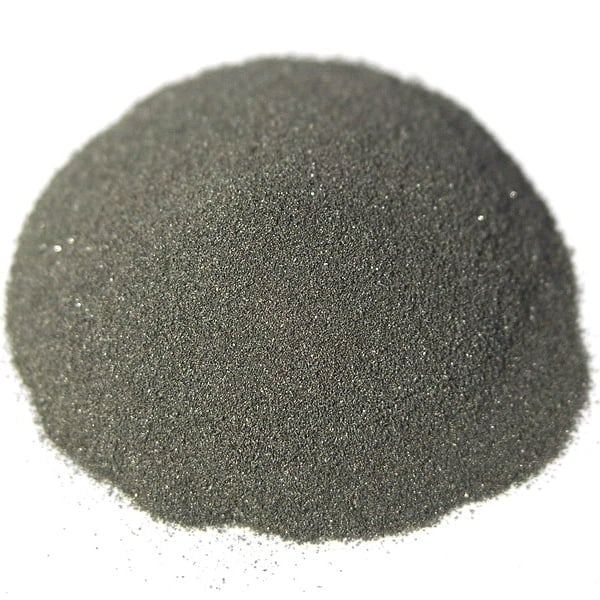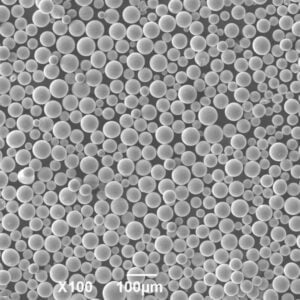
Pure Titanium Powder
Overview of Pure Titanium Powder Titanium powder is a metal powder made from titanium metal. It is characterized by its high strength-to-weight ratio, corrosion resistance, and biocompatibility. Titanium powder has diverse applications across industries such as aerospace, medical, automotive, and consumer products. This article provides a comprehensive guide to titanium powder. It covers the composition,…
ขั้นต่ำขนาดเล็ก
Flexible sourcing for hundreds of products
Customization support
Customized powder according to industry
Rapid shipment
By DHL Express, safe and fast direct to your hands
Overview of Pure Titanium Powder
Titanium powder is a metal powder made from titanium metal. It is characterized by its high strength-to-weight ratio, corrosion resistance, and biocompatibility. Titanium powder has diverse applications across industries such as aerospace, medical, automotive, and consumer products.
This article provides a comprehensive guide to titanium powder. It covers the composition, properties, applications, specifications, suppliers, handling, inspection, comparisons, pros and cons, and frequently asked questions about titanium powder. Quantitative data is presented in easy-to-read tables for quick reference.
Composition of Titanium Powder
Titanium powder can be pure titanium or an alloy containing titanium as the main element. The composition determines the properties and applications.
| องค์ประกอบ | รายละเอียด |
|---|---|
| Pure Titanium | Contains >99% titanium. Lowest strength but excellent corrosion resistance. |
| Ti-6Al-4V | 6% aluminum, 4% vanadium. Most common titanium alloy with high strength. |
| Ti-3Al-2.5V | 3% aluminum, 2.5% vanadium. Higher ductility than Ti-6Al-4V. |
| Ti-6Al-7Nb | 6% aluminum, 7% niobium. Higher strength for aerospace applications. |
| Ti-15Mo-3Nb-3Al-0.2Si | 15% molybdenum, 3% niobium, 3% aluminum, 0.2% silicon. Beta titanium alloy. |
Titanium powder can also be blended with other elemental powders like iron, aluminum, or boron to create customized alloys.
Properties of Titanium Powder
The unique properties of titanium make it suitable for demanding applications across industries.
| ทรัพย์สิน | คำอธิบาย |
|---|---|
| ความแข็งแรงสูง | Has excellent strength-to-density ratio, close to high strength steels. |
| ความหนาแน่นต่ำ | Weighs 60% less than steel or nickel alloys. |
| ความต้านทานการกัดกร่อน | Forms stable TiO2 oxide film for corrosion protection. |
| ชีวสาระบรรจบ | Non-toxic and compatible with human body tissues. |
| ทนความร้อน | Maintains mechanical properties up to 600¡«C. |
| ไม่เป็นแม่เหล็ก | Useful for non-magnetic applications. |
| Non-sparking | Safer for flammable environments compared to steel. |
The properties can be tuned by changing the composition, grain size, porosity, and processing method.

Applications of Titanium Powder
The versatile properties of titanium powder enable unique applications in the following industries:
| อุตสาหกรรม | แอปพลิเคชัน |
|---|---|
| อวกาศ | Engine components, aircraft structures, space vehicles |
| แพทย์ | Implants, surgical instruments, medical devices |
| ยานยนต์ | Connecting rods, valves, springs, fasteners |
| เคมี | Corrosion resistant vessels, heat exchangers, pipes |
| Sporting goods | Golf clubs, tennis rackets, bicycles, helmets |
| การผลิตแบบเติมเนื้อ | Aerospace, automotive, and medical 3D printed parts |
Titanium’s biocompatibility makes it ideal for implants and medical devices. Its corrosion resistance suits it for seawater applications. The high strength is useful for critical components in aerospace.
Specifications of Titanium Powder
Titanium powder is available in different size ranges, shapes, purity levels, and composition to suit specific applications.
| พารามิเตอร์ | Specifications |
|---|---|
| ขนาดของอนุภาค | 15-45 microns, 45-105 microns, 105-250 microns |
| รูปร่างของอนุภาค | Spherical, angular, mixed morphology |
| ความบริสุทธิ์ | Grade 1 (99.2% Ti), Grade 2 (99.5% Ti), Grade 4 (99.9% Ti) |
| Alloy grades | Ti-6Al-4V, Ti-6Al-7Nb, Ti-64, Ti-1023 |
| วิธีการผลิต | Gas atomization, plasma atomization, hydride-dehydride |
The particle size distribution, morphology, oxygen/nitrogen content, and microstructure are controlled as per application requirements.
Suppliers of Titanium Powder
Titanium powder is supplied by leading metal powder manufacturers globally:
| ซัพพลายเออร์ | ที่ตั้ง |
|---|---|
| AMETEK | สหรัฐอเมริกา |
| AP&C | แคนาดา |
| TLS เทคนิค | เยอรมนี |
| Tekna | แคนาดา |
| Metalysis | สหราชอาณาจักร |
| Praxair | สหรัฐอเมริกา |
| Rio Tinto | แคนาดา |
| ผงโลหะ ATI | สหรัฐอเมริกา |
| กลุ่มผง CNPC | ประเทศจีน |
Titanium powder prices range from $50/kg to $500/kg based on purity, particle size, production method, and order volume. Custom alloys, special particle morphologies, and strict tolerances cost more.
Handling and Storage of Titanium Powder
Special precautions are needed when handling titanium powder to prevent fires, explosions, and property damage:
- Store in cool, dry, inert environments away from moisture, sparks, and flames
- Use conductive containers grounded to prevent static charge buildup
- Local exhaust ventilation is recommended to control dust
- Avoid dust accumulation to minimize explosion hazard
- Wear dust masks, safety goggles, gloves to prevent inhalation and skin contact
- Follow material safety data sheet (MSDS) instructions for safe handling
Inspection and Testing of Titanium Powder
Titanium powder batches are tested to ensure they meet the required material specifications:
| วิธีทดสอบ | Parameter Measured |
|---|---|
| การวิเคราะห์ผ่านตะแกรง | การกระจายขนาดของอนุภาค |
| Laser Diffraction | Particle size distribution, mean size |
| กล้องจุลทรรศน์อิเล็กตรอนแบบส่องกราด | Particle morphology, microstructure |
| สเปกโทรสโคปีการกระจายพลังงานรังสีเอกซ์ | ส่วนประกอบทางเคมี |
| การเลี้ยวเบนของรังสีเอกซ์ | Phase composition |
| Spectrophotometry | Oxygen, nitrogen, hydrogen content |
| ความหนาแน่นที่แตะ ะ | Apparent density, flowability |
| Pycnometer | Skeletal density |
Sampling and testing as per ASTM standards ensures titanium powder quality for critical applications.
Comparing Titanium Powder to Alternatives
Titanium has advantages and disadvantages compared to substitute materials:
| ไทเทเนียม | อลูมิเนียม | สเตนเลสสตีล | |
|---|---|---|---|
| ความหนาแน่น | ต่ำ | ลดลง | สูงขึ้น |
| ความแข็งแรง | สูง | กลางๆ | สูง |
| ความต้านทานการกัดกร่อน | ยอดเยี่ยม | ดี | ดี |
| Temperature resistance | ดี | กลางๆ | ดีกว่า |
| ค่าใช้จ่าย | สูง | ต่ำ | กลางๆ |
| Magnetic permeability | ต่ำ | ต่ำ | สูง |
| ชีวสาระบรรจบ | ยอดเยี่ยม | จน | ดี |
Titanium stands out for its corrosion resistance and biocompatibility despite its higher cost. Aluminum and stainless steel may be cheaper alternatives depending on application requirements.
Pros and Cons of Titanium Powder
| ข้อดี | ข้อเสีย |
|---|---|
| อัตราความแข็งแรงต่อน้ำหนักที่สูง | Expensive compared to steels |
| ทนทานต่อการกัดกร่อน | Reactivity with oxygen at high temperatures |
| ปลอดสารพิษและไม่ก่อให้เกิดการแพ้ | Low elastic modulus can mean springback in machining |
| Excellent biocompatibility | Low thermal conductivity |
| Retains properties at high temperatures | Requires inert atmosphere processing |
| Wide range of alloying possibilities | Limited high temperature strength |
Titanium powder enables lightweight, strong parts but requires controlled handling and processing. Cost is higher than conventional alloys.
Frequently Asked Questions about Titanium Powder
Here are answers to some common questions about titanium powder:
Q: What is titanium powder used for?
A: Titanium powder has uses across aerospace, medical, automotive, chemical, and sporting goods due to its high strength, low weight, corrosion resistance, heat resistance, and biocompatibility. It is commonly used for critical rotating parts in aircraft engines, orthopedic implants, automotive components, heat exchangers, and additively manufactured parts.
Q: Is titanium powder safe to handle?
A: Titanium powder can ignite and explode when very finely divided and exposed to air. Proper grounding, inert atmosphere, ventilation, and protective equipment are essential when handling titanium powder. It is also non-toxic and hypoallergenic on skin contact.
Q: What is the difference between Grade 1 and Grade 5 titanium powder?
A: Grade 1 titanium powder has higher purity with lower oxygen and iron content compared to Grade 5. Grade 1 provides better corrosion resistance while Grade 5 offers higher strength. Grade 5 powder would be used where strength is critical while Grade 1 suits chemical resistance needs.
Q: Does titanium powder rust?
A: Titanium forms an impervious and self-repairing oxide layer that protects it from rusting and corrosion. It exhibits excellent corrosion resistance in most environments including saltwater. This property makes it suitable for marine applications.
Q: Is titanium powder magnetic?
A: No, titanium powder is non-magnetic. Its relative magnetic permeability is very close to 1 which makes it useful for non-magnetic applications instead of ferritic steels.
Q: What is the cost of titanium powder?
A: Titanium powder can range from $50/kg to $500/kg depending on purity, particle size, production method, morphology, and order volume. High purity grades suitable for medical use are more expensive. Custom alloys and special particle shapes also cost more.
Q: What is the difference between gas atomized and hydride-dehydride titanium powder?
A: Gas atomized titanium powder has a spherical morphology ideal for additive manufacturing while hydride-dehydride powder has an angular, irregular shape suited for pressing-and-sintering. The powder properties, surface chemistry, microstructure and cost differ for the two production methods.
Q: How is titanium powder produced?
A: The main production methods are gas atomization, plasma atomization, and hydride-dehydride process. Gas atomization using argon or nitrogen gas is a common method to produce fine spherical powder for AM. The hydride process generates angular powder for pressing into shapes before sintering. Plasma atomization can produce very fine spherical powders.
Q: What are the contents of a titanium powder material safety data sheet (MSDS)?
A: The MSDS will have health hazard information, reactivity data, toxicological data, handling precautions, storage information, spill procedures, firefighting instructions, first aid measures, and disposal guidelines. It is critical to review the MSDS before working with any amount of titanium powder.
Q: What standards apply to titanium powder?
A: Key standards include ASTM B833 for spherical titanium powder, ASTM B981 for titanium alloys for powder metallurgy, ASTM B988 for gas atomized titanium alloy powder, and ISO 22068 for additive manufacturing with titanium alloys. The specifications cover sampling, testing, size analysis, chemical analysis, and quality assurance.
Contact us now
Please contact us for recent product quotes and stock availability.
